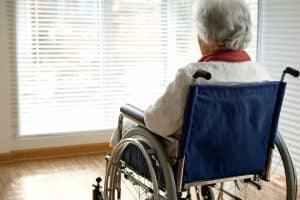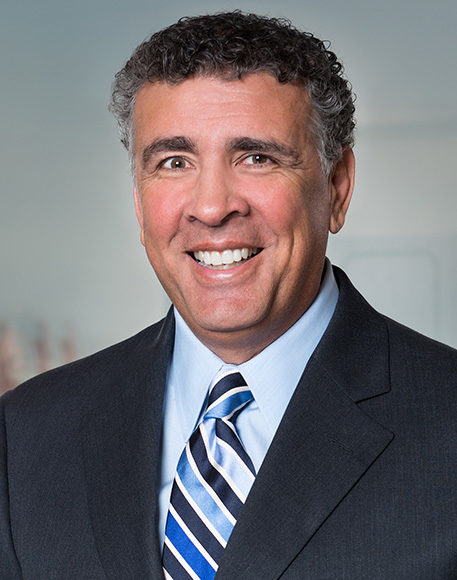How to Report Elder Abuse in Louisiana
 As of 2023, over a million Louisiana residents had reached their 60th birthday. Some are healthier than others. It is those who live in nursing homes and other assisted living facilities who are most at risk for elder abuse, neglect and financial exploitation. Unfortunately, some studies found that Louisiana ranks 49th out of 50 states for the quality of their nursing homes. Nearly 10% of nursing home residents have suffered from bedsores, a prominent telltale sign of nursing home abuse.
As of 2023, over a million Louisiana residents had reached their 60th birthday. Some are healthier than others. It is those who live in nursing homes and other assisted living facilities who are most at risk for elder abuse, neglect and financial exploitation. Unfortunately, some studies found that Louisiana ranks 49th out of 50 states for the quality of their nursing homes. Nearly 10% of nursing home residents have suffered from bedsores, a prominent telltale sign of nursing home abuse.
Louisiana’s number of elderly residents will increase for many years to come. Resources will be stretched thin to accommodate this population explosion. As staffing shortages become more acute, nursing homes will be tempted to observe lax hiring standards. Since this could result in unqualified or apathetic staff, loved ones will have to work harder than ever to ensure proper care.
Louisiana’s legal framework for the protection of the elderly
If your loved one is at risk for elder abuse, you are not alone. The state of Louisiana has created a legal framework to protect the elderly and respond to allegations of elder abuse.
Louisiana’s legal framework for elder abuse protection is governed primarily by the Adult Protective Services Act, which mandates the reporting of suspected abuse, neglect, or exploitation of adults aged 60 and older.
The Louisiana Department of Health has the authority to intervene, investigate, and arrange for necessary support services. Elderly Protective Services (EPS) play a role, as does the Long-Term Care Ombudsman Program. Courts also play a role by issuing protective orders and injunctions.
Identifying abuse
Sometimes identifying abuse is the hardest part. Abuse comes in many forms–physical, emotional, neglect and financial exploitation, for example. Difficulty identifying abuse is especially likely if your loved one suffers from dementia or communication difficulties. Moreover, some symptoms, such as depression, may or may not arise from abuse. Here are some telltale signs that might suggest abuse:
- Unexplained physical injuries: Rope marks on wrists or ankles (signs of restraint) and bedsores (signs of negligence) are dead giveaways.
- Sudden behavioral or emotional changes: The more sudden they are, the more you should pay attention to them. Pay special attention if your loved one seems to fear a particular person.
- Poor hygiene or untreated medical conditions: Strong body odor, soiled clothing and bedding, a generally unkempt appearance and dehydration are all major red flags.
- Signs of financial abuse: Unexplained withdrawals from bank accounts, new joint bank accounts, changes in wills, insurance beneficiaries, or power of attorney documents, a sudden inability to meet expenses despite adequate income, or the appearance of new “friends” in your loved one’s life could all indicate financial abuse.
- Unsafe or unsanitary living conditions: Dirty, dangerous, or pest-infested living conditions, for example, especially at an elder care facility, could indicate neglect or incompetent care.
- Isolation or restricted access for relatives and friends: Abusive caregivers frequently rely on isolating the victim from family and friends, preventing phone calls or internet access, or denying visits altogether. This makes it difficult to monitor your loved one’s well-being, which is sometimes exactly the point.
- Medication abuse: Over-sedation, confusion, or the failure to administer prescribed medications indicates abuse.
- Sudden weight loss: Rapid loss of weight could be health related, but sometimes it indicates abuse-related stress or neglect if the facility isn’t ensuring the person eats.
As a general rule, keep a close watch over your loved one’s physical and emotional condition and take counsel from your intuition. Maintain open communication with your loved one if at all possible.
Louisiana’s elder abuse reporting laws
Many states obligate professionals, such as doctors and social workers, to report any suspected abuse to the relevant authorities. Louisiana takes it a step further—anyone who suspects abuse is subject to the reporting obligation, regardless of whether they are a professional. Family members, neighbors, and bystanders are all subject to it. Nevertheless, enforcement is particularly strict against professionals.
Louisiana can fine you up to $500 and jail you for up to six months if you know about but fail to report elder abuse. Although the state can also punish you for filing a false report, you cannot face civil or criminal penalties for a report that turns out to be unsubstantiated as long as you acted in good faith. Louisiana also guarantees confidentiality of reporters, at least if you ask them to.
How to report elder abuse in Louisiana
Reporting elder abuse in Louisiana is a reasonably straightforward process:
- In an emergency, call 911.
- Under non-emergency conditions, use the nationwide Eldercare Locator to help you decide which of the below-listed organizations should handle your case.
- Under non-emergency circumstances, call Elderly Protective Services (EPS) at 833‑577‑6532. Your loved one does not have to live in an assisted living facility to fall within EPS jurisdiction.
- Call the Nursing Home Hotline at 888‑810‑1819 to trigger a state investigation of the practices of your loved one’s nursing home.
- Contact the Long-Term Care Ombudsman Program. Ombudsmen investigate complaints, advocate for residents’ rights, and resolve issues directly within facilities.
- Report to the Louisiana Department of Health (LDH), Health Standards Section. They investigate complaints related to facility standards and quality of care.
No matter which option you choose, acting promptly is the most important consideration.
Information to include in your report
Include the following information in your report, to the extent you have access to it:
- The victim’s identifying details
- A description of the suspected abuse
- When and where the incident occurred
- The name of suspected abuser
- The relationship between the victim and the abuser
- Any immediate danger or urgent needs
- Names and contact info of any witnesses
- Whether the victim has cognitive impairments or special needs
You can choose to provide your own identifying details, or you can choose to remain anonymous.
What happens after you file a report
After you file a report, the appropriate organization will investigate your case and take potential protective actions, such as removing your loved one from an abusive environment. They may assess fines or even file a criminal complaint with the prosecutor.
Act decisively
When you suspect that your loved one is suffering from elder abuse, your goals should be to confirm the abuse, rescue your loved one from the abusive environment and seek compensation for your loved one’s suffering—in that order. An experienced elder abuse law firm can greatly improve your odds of achieving all three of these goals. In this way you will help not only your loved one, but anyone else who the defendant might have otherwise abused.
Based on the amount recovered for its clients (over $3 billion), Garcia & Coman is one of the most successful elder abuse law firms in history. We maintain an office in New Orleans as well as several more offices elsewhere in the US. Contact us for a free initial consultation.

Stephen M. Garcia represents victims of elder and nursing home abuse and is known as one of the leading civil litigators in the country. He is Senior Partner at Garcia & Coman, where the firm’s practice is focused on elder abuse, nursing home abuse, and wrongful death of the elderly.
Find out more about Stephen M. Garcia

